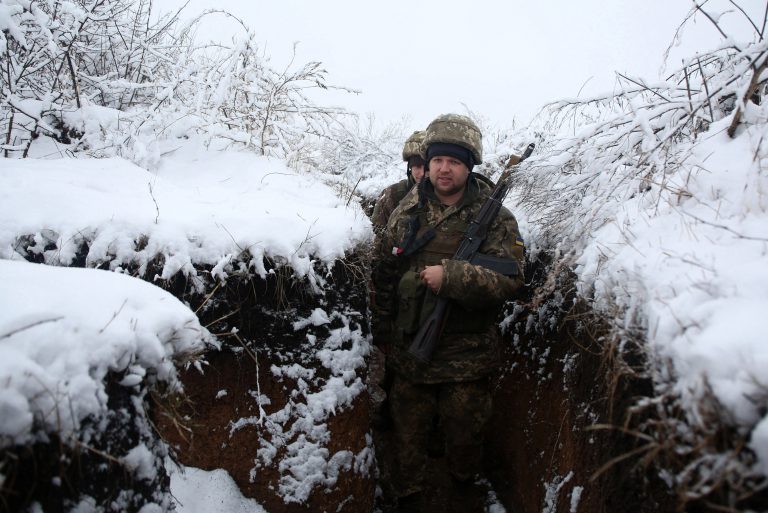U.S. Secretary of State Antony Blinken and China’s Foreign Minister Wang Yi recently held a telephone conversation in which both sides called for easing down tensions between Ukraine and Russia. Moscow has amassed over 100,000 soldiers near the Ukrainian border, thus creating an atmosphere of war.
According to the People’s Republic of China (PRC) foreign ministry, Wang told Blinken that all parties involved in the simmering conflict must “stay calm and refrain from doing things that agitate tensions.” Blinken called for “de-escalation and diplomacy” as a “responsible way” forward on the issue. The Secretary of State also discussed the economic and global security risk posed by Russia’s aggression against Ukraine.
“Wang Yi chose to defend Russia’s ‘legitimate security concerns’ rather than offer any support to Blinken,” Daniel Russel, the senior U.S. diplomat for Asia under former President Barack Obama, said to Reuters.
Bonnie Glaser of the German Marshall Fund of the United States, pointed out that China could spoil any attempts by the West to impose costs on Russia for its aggression. She believes it is “unlikely” that Washington will get Beijing on board with regard to Ukraine. Though the communist regime won’t endorse the use of force, it is “sympathetic” to the Russian view of NATO.
During his talk with Blinken, Wang stated that one country’s security could not come at the expense of others, which many believe refers to NATO’s expansion in Eastern Europe and Moscow’s apprehension about the expansion. One of the demands put forward by the Russian side is that the West guarantees Ukraine will never be allowed to join NATO.
Success
You are now signed up for our newsletter
Success
Check your email to complete sign up
Victoria Nuland, U.S. Under Secretary of State for Political Affairs, stated that Washington’s message to Beijing about the Ukraine crisis has been very clear. “We are calling on Beijing to use its influence with Moscow to urge diplomacy, because if there is a conflict in the Ukraine it is not going to be good for China either… There will be a significant impact on the global economy. There will be a significant impact in the energy sphere,” Nuland said.
The Russia-Ukraine crisis is heating up just as China is scheduled to host the Winter Olympics in Beijing in February. A report by Bloomberg pointed out that a Russian invasion of Ukraine could complicate relations between Moscow and Beijing. The communist regime is looking forward to hosting the games successfully in order to portray itself in a positive light. Citing a diplomat in Beijing, the report stated that Chinese leader Xi Jinping might have asked Russian President Vladimir Putin to avoid invading Ukraine amidst the games.
An angry China has dismissed such suggestions. “The report was purely made out of thin air. It seeks not only to smear and drive a wedge in China-Russia relations, but also to deliberately disrupt and undermine the Beijing Winter Olympics. Such a despicable trick cannot fool the international community,” Zhao Lijian, spokesman for the PRC foreign ministry, said at a press conference.
While the West could impose sanctions on Russia should it invade Ukraine, China’s support and economic relationship with Russia might limit the effectiveness of such actions. In an interview with VOA News, Professor Steve Tsang, director of the China Institute at the University of London’s School of Oriental and African Studies, pointed out that the Chinese regime follows a policy of “making the world safe for autocrats.”
The Chinese Communist Party (CCP) views itself as a “leading socialist country” and has a “soft spot” for former socialist nations.
“So, Russia under (President Vladimir) Putin ticks two boxes that make Russia very deserving of Chinese support… The policy I think China is likely to take is to do whatever they can to help the Russians to face up to the economic sanctions that the U.S. and Europeans may impose on Russia. (However) I think economic links between Russia and China are not really strong enough to replace any break of economic links between Russia and Europe,” Tsang said.













